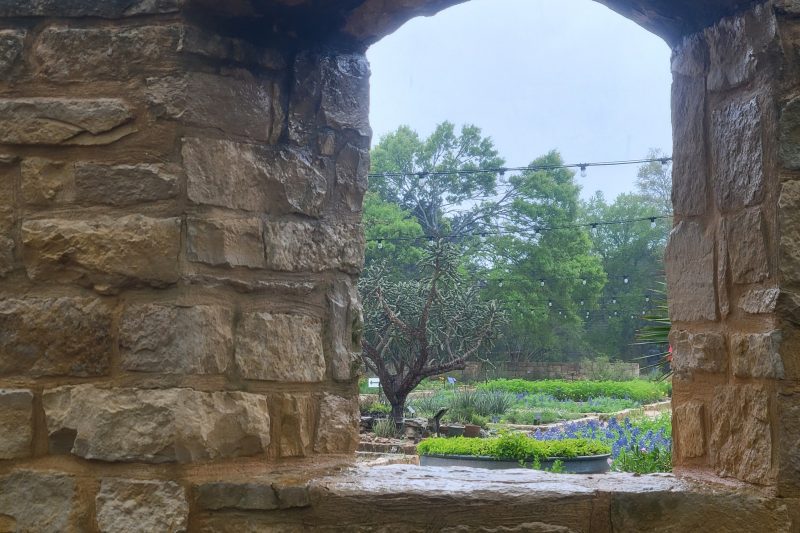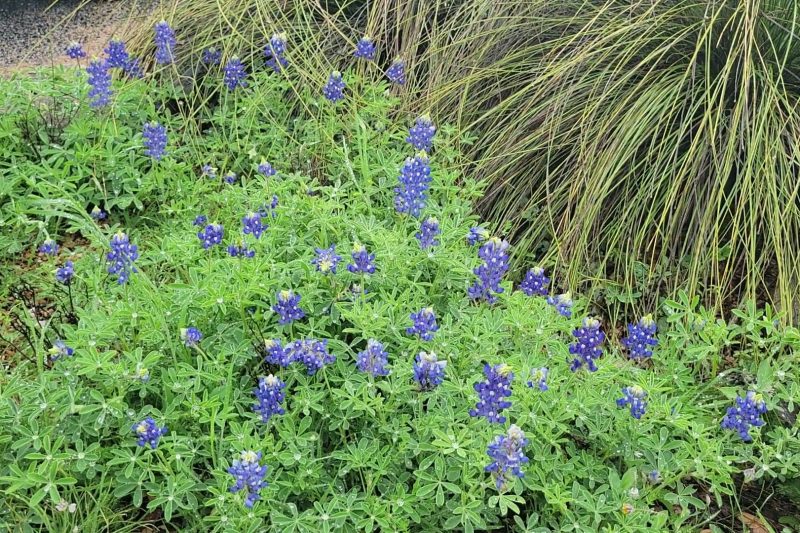Experts Predict Lush Wildflower Season in Texas Despite Changing Climate
By Avery Hough
Reporting Texas TV
AUSTIN, Texas – Spring came early in Texas this year, and many blooms sprouted earlier than normal.
Sophie Lemkin, a horticulturist at the Lady Bird Johnson Wildflower Center, predicts a lush wildflower bloom as a result of frequent and sustained rains in the fall. She said increasingly early spring weather is due to climate change.
“Earlier spring can be exciting when we’ve been in winter and you’re like ‘yeah, spring is here,’ but we’ve yet to see yet what the greater effects are going to be,” Lemkin said.
She worries about how quickly native plants will be able to adapt to the rapidly changing climate. Lemkin said the loss of wildflowers and native plants could have a big impact on our ecosystem.
“Once we start seeing declining wildflowers, we will start seeing a declining animal population as well, so it’s not just the bees and the birds, but it’s also everything that eats those bees and those birds,” Lemkin said.
“They are just one part of that big ecosystem, and when one thing falls out of balance, everything else falls out of balance as well.”
She encourages people to bring biodiversity into their backyards and plant native plants.
“They provide that food source for all of our native insects and animals, so they’re a great way to help support your environment and just keep the beauty of where you live alive. It’s a very concrete way to do restoration work in your backyard,” Lemkin said.

Visitors to the Lady Bird Johnson Wildflower Center in Austin, Texas, saw theme gardens full of bluebonnets and native plants yet to bloom on Tuesday March 21, 2023. (Avery Hough/Reporting Texas TV)
The Lady Bird Johnson Wildflower Center will host several events this spring to engage Austinites with native plants, including a weekly Tuesday Twilights series and Spring Native Plant Sale.
The wildflower center will sell native grasses, trees, flowers and more every weekend until May 7 to encourage the spread of native plants across the city.
Tuesday Twilights started March 17 and include live music, local food trucks, craft cocktails and bluebonnet blooms. Tuesday Twilights will run from 5-8 p.m. weekly through May 9 to offer patrons an after-hours experience to walk through native blooms while the sun sets.
Events manager Erika Tucker came to the center five years ago after her daughter’s birth. She said she enjoys experiencing nature through the eyes of her children.
She wants others to experience that joy and aims to make each Tuesday a unique experience.
“The gardens change weekly here, so if you come to this week’s Tuesday Twilights it’s going to look a lot different than next week,” Tucker said.
“The music will change, the food will change and the drinks will change as well as the wildflowers.”
Lemkin said new wildflower blooms will pop up across Texas as the season progresses. Texas Wildflower Watch provides updates on where to find local blooms.

Bluebonnets in full bloom at the entrance of the Lady Bird Johnson Wildflower Center in Austin, Texas, greeted guests at the first Tuesday Twilights of the season on Tuesday, March 21, 2023. (Avery Hough/Reporting Texas TV)
The University of Texas student organization Beevo is also making efforts to keep native plants alive through its pollinator garden behind T.S. Painter Hall. It includes native pollinators like Gregg’s Mistflower and Senna, as well as flowering herbs.
Beevo members take care of four hives and thousands of bees on campus. They aim to teach students about sustainability and pollinators through workshops which sometimes include hands-on experiences with the hives.
Graduate student John Semlitsch joined Beevo because of his love of gardening and deep appreciation for the ecosystem around him.
“I think wildflowers are little miracles, honestly. They are the stuff that makes it all worth it in a way,” Semlitsch said.
“Little things like wildflowers and the organisms that depend on them—the bees, the butterflies—those things are completely mystifying and totally infinite, but they are not literally infinite, these are organisms that are incredibly vulnerable.”
Semlitsch said planting native plants is the future of Texas agriculture.
“Wildflowers aren’t only the ancient and distant past, but they are the future,” he said.
“They’re the way to undo a lot of the damage that we’ve done gardening incorrectly or at least with different objectives in mind. If the objective now is to take it easy on the environment, wildflowers are the way to do that.”
He said invasive plants damage the environment, but wildflowers are a solution to give the land a rest.